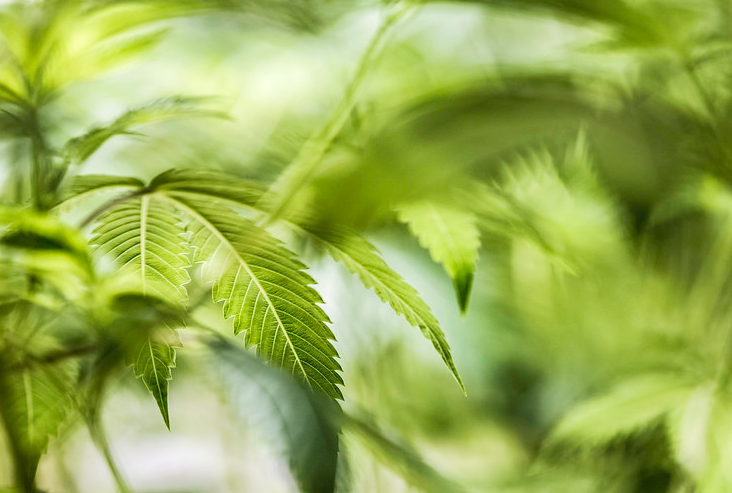A fresh poll shakes up the debate on marijuana, revealing that most Americans now see it as a safer choice over alcohol and predict full nationwide legalization in just five years. This shift in public opinion could reshape laws and spark big changes in health and economy talks. But what drives this change, and what does it mean for everyday folks?
Poll Uncovers Strong Support for Marijuana
The MRI-Simmons 2025 National Cannabis Study, released just hours ago, surveyed thousands of U.S. adults and found eye-opening results. A solid 61% of Americans believe marijuana is a healthier option than alcohol. This comes as no surprise to many, given rising awareness of alcohol’s risks like liver damage and addiction.
The poll dives deeper into why views are changing. People point to marijuana’s potential for pain relief and stress reduction without the harsh hangovers or long-term harm linked to booze. Researchers conducted this study in early 2025, pulling data from a diverse group across all states.
Support isn’t just talk. The survey shows 64% expect cannabis to be legal everywhere in the U.S. within five years. That’s a jump from past years, hinting at growing pressure on lawmakers.
This isn’t isolated. Other recent surveys back it up, like one from Pew Research in July 2025, where nine in ten Americans said marijuana should be legal for medical or fun use.

Health Views Drive the Shift
Americans are rethinking old stigmas. The poll highlights that most see marijuana as less dangerous than tobacco or even some over-the-counter meds. In fact, 74% in the study agree legalization could boost tax revenue smartly. This ties into health talks, as folks weigh benefits against risks.
One key finding stands out. Daily marijuana use has edged out daily alcohol drinking in some groups, per a May 2024 study from The New York Times. That report noted more people turning to cannabis regularly, while alcohol habits stay steady.
But not everyone’s on board. Some worry about youth access or driving safety. The poll addresses this, with 73% saying legal dispensaries help local economies by creating jobs and funding schools.
Health experts chime in too. Studies show marijuana might help with anxiety or chronic pain, unlike alcohol’s link to over 140,000 U.S. deaths yearly from related issues.
Path to Nationwide Legalization
Expectations run high. The MRI-Simmons poll predicts a majority see full legalization by 2030, fueled by state-level wins. Currently, 24 states plus D.C. allow recreational use, up from none a decade ago.
What sparks this hope? Recent moves like federal reviews on rescheduling marijuana from a high-risk drug category. A Rasmussen Reports poll two weeks ago found most Americans don’t view cannabis as dangerous, pushing for change.
Barriers remain. Opponents cite addiction risks or gateway drug fears, though the poll shows only 31% worry about that transition to harder stuff.
Progress looks real. A NuggMD survey from August 2025 showed cannabis users betting on federal legalization before the 2028 election.
- Key factors speeding legalization: Growing medical evidence, economic gains, and voter demand.
- Challenges ahead: Federal laws lagging behind states, plus debates on regulation.
Economic and Social Impacts Explored
Legalization isn’t just about health. The poll ties it to money matters. Nearly three-quarters of respondents say dispensaries strengthen communities by adding jobs and revenue. Think taxes funding roads or education, already happening in places like Colorado.
Take a closer look at the numbers in this simple breakdown:
| Aspect | Percentage Supporting |
|---|---|
| Healthier than alcohol | 61% |
| Expect legalization in 5 years | 64% |
| Boosts tax revenue | 74% |
| Benefits local economy | 73% |
These stats paint a picture of optimism. Socially, it means less stigma. More folks, about 56% per a YouGov poll from April 2024, have tried marijuana, with 17% using it monthly.
This affects daily life. Parents might discuss safer alternatives with teens, while businesses eye new markets. But it raises questions on rules, like age limits mirroring alcohol’s.
One thing’s clear. As views evolve, so do conversations at dinner tables and in boardrooms.
The poll’s timing matters. With elections looming, candidates who back reform could gain votes. A Reuters/Ipsos poll from October 2022 showed 65% more likely to support pro-legalization hopefuls.
This wave of support reflects broader cultural shifts. From medical breakthroughs to economic perks, Americans seem ready for change.
This poll signals a turning point, where marijuana steps out of the shadows as a viable, healthier alternative to alcohol, with legalization on the horizon that promises economic boosts and personal freedoms. It stirs hope for a future where choices are informed and stigma fades, but it also urges caution to protect the vulnerable.



